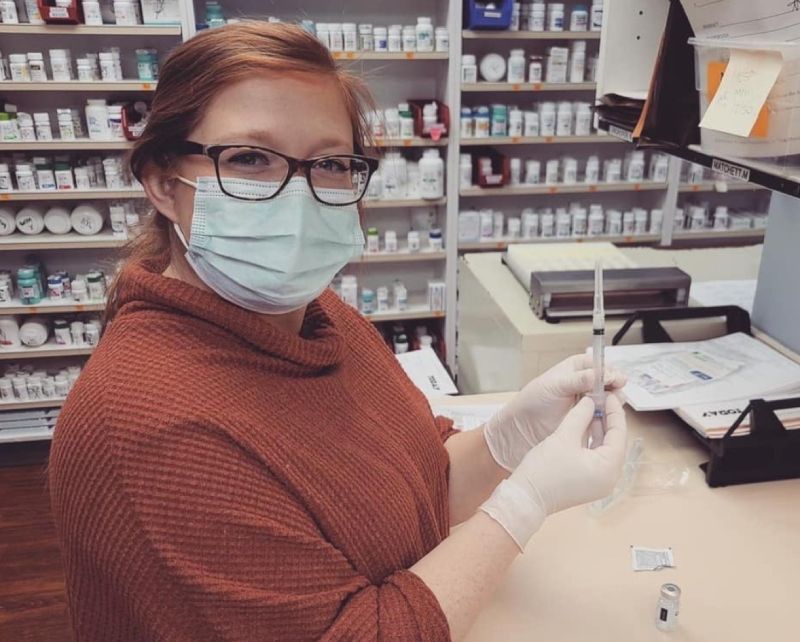Specialty Spotlight: What is a Functional Medicine Doctor?
Conventional medical doctors focus on presenting symptoms and basic lab testing to treat a condition. While this works well in many instances, it has its limitations when a patient has a unique or chronic condition. Functional medicine doctors focus on finding the root cause or imbalance in the body to provide treatment that targets the whole person. This guide will explore this specialty more in-depth so you can determine if it’s the right focus for you.
What Is a Functional Medicine Doctor?
A functional medicine doctor is a doctor who has had specialized training to dig in and find the root cause of chronic illness. These doctors often work holistically, which means they consider the whole patient, not just the symptoms of the illness they are treating. This holistic approach considers the mental and emotional health of the patient in addition to their physical symptoms.
When it comes to treating patients, many functional medicine doctors think outside the box. While they can use traditional treatments and medications, they will also use herbs, vitamins, and lifestyle changes to support their patients on the path to wellness.
Are Functional Medicine Doctors MDs?
Many Functional Medicine Doctors are MDs, while others choose to pursue a Doctor of Osteopathic Medicine (DO) degree instead. The education for a DO is similar to an MD, but the focus is slightly different.
Although a doctorate degree is required to be considered a Functional Medicine Doctor, many people call themselves functional medicine practitioners who are not medical doctors. These people may be physician assistants, chiropractors, or nurse practitioners who have studied functional medicine. In order to be called a functional medicine doctor, a practitioner needs to have a doctoral degree. Practicing holistic medicine is not exclusive to doctors, but many MDs and DOs chose to pursue additional study in functional medicine to better help their patients.
What Does a Functional Medicine Doctor Do?
Functional medicine doctors perform many of the same roles as traditional medicine doctors. They will evaluate patient health and symptoms, examine health history, and treat disease. However, they tend to look deeper to find the root cause of an illness. They are more likely to look at a patient’s diet and lifestyle in addition to prescribing medication.
At an appointment, a functional medicine doctor will explore a patient’s entire health history and lifestyle, including:
- Symptoms
- Sleep and exercise habits
- Diet
- Relationships
- Spirituality and mental health
- Stress
Using that information, the doctor will choose lab work to dig deeper into what might be causing symptoms. Functional medicine doctors create treatment plans based on a patient’s health history and lab work. If they are medical doctors, that plan may include prescription medications, supplements, and lifestyle changes. If they are not medical doctors, they may suggest medications to try, but the patient will have to visit a medical doctor for a prescription. Many functional medicine doctors lean heavily on natural treatments, such as supplements, rather than prescription medications, but if they have a medical license, they can do both.
For example, if a patient comes to a functional medicine doctor with high blood pressure, the doctor is likely to prescribe blood pressure medication. However, a functional medicine doctor will also look at diet, exercise, and stress levels and provide suggestions on how to treat or control these contributing factors. Sometimes, the functional medicine doctor will focus on these lifestyle changes first and then prescribe medication only if needed after trying the natural route.
Functional Medicine vs. Conventional Medicine
Functional and conventional medicine practitioners have the same goal: to help patients overcome physical concerns to live a healthy lifestyle. However, functional medicine doctors use more testing and treatment options to get to the root cause. In addition, they may stay with their patients longer to ensure optimal wellness. Since traditional doctors focus on treating symptoms, they often stop follow-up after symptoms abate. Functional medicine doctors, on the other hand, often follow their patients well into the future to help them establish patterns of wellness.
- Conventional medicine focuses on presenting symptoms
- Functional medicine focuses on that patient, beyond their current symptoms
Functional Medicine vs. Integrative Medicine
Functional medicine is similar in scope to another type of alternative medicine, integrative medicine. Both functional and integrative practitioners will look at the root causes of medical conditions and have a tendency to prescribe natural treatments. However, integrative medicine doctors are more likely to recommend natural treatments over prescription medications, while functional medicine doctors often choose both.
- Integrative medicine doctors often favor natural treatments
- Functional medicine doctors are more likely to combine natural treatments with prescription medications
Where Do Functional Medicine Doctors Work?
Functional medicine doctors work in medical offices and clinics. They often practice independently of large hospital systems, but some systems do hire functional practitioners. As this type of medicine is growing in popularity, the demand for this type of holistic doctor in large health systems is also growing, so you are more likely to find these doctors in larger practices now than in the past.
How to Become a Functional Medicine Doctor?
To become a functional medicine doctor, you must first complete medical school as either an MD or a DO and become a licensed doctor. From there, students enter a functional medicine training program. The most widely recognized is The Institute for Functional Medicine certification program. After completing the required courses from the IFM, students submit a case report and take a written exam. Passing both of these earns the IFM certification, which allows the doctor to practice as a licensed functional medicine practitioner.
Is Functional Medicine the Right Specialty for You?
Functional medicine is a good choice for people interested in medicine who want to use problem-solving skills to get to the root cause of medical concerns. Pre-med students who are interested in a medical career who want to go deeper in helping their patients may find working in functional medicine quite rewarding.
If you want to explore more about functional medicine and other medical specialties, consider talking to one of our pre-med student advisors. Advanced eClinical Training offers a pre-med mentorship program that can connect you with these advisors to get expert guidance on your medical school plan. Through one-on-one mentorship and a strategic advising plan tailored to your goals, this program helps you focus your pre-med training in the right way so you have a strong medical school application. It also helps you narrow down your focus to the specialty that fits you best.
Start planning for your success in your medical career with Advanced eClinical Training. Enroll now to get started.


